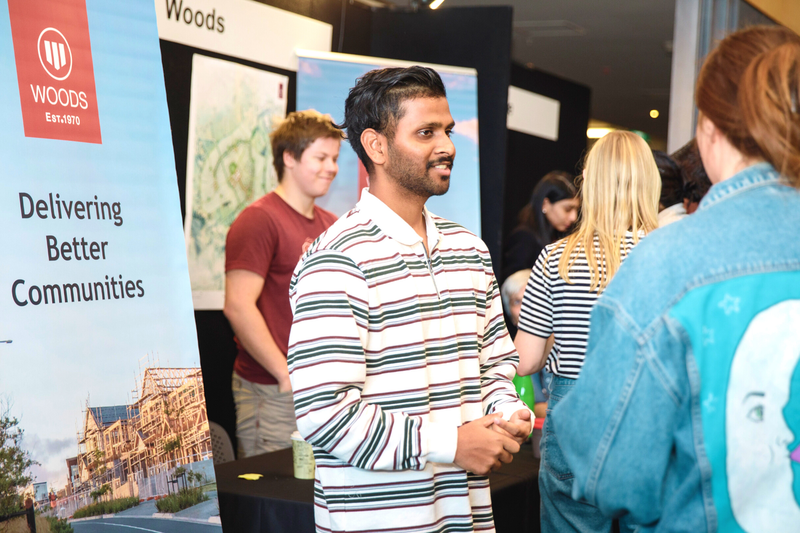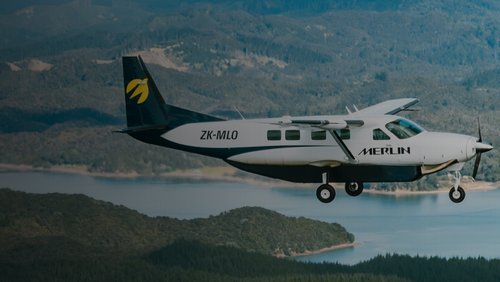9 Jun 2022
At Woods, creating and delivering better communities is at the heart of what they do. This month, we caught up with them to learn about their approach to professional development.
At Woods, we offer a full suite of urban design and architecture, engineering, planning, surveying and geo-spatial services to the land development, building, health, institutional, energy, government, and transport sectors, to name a few.
88 of our 200 staff are engineers, and 12 are engineering associated professionals. Woods' approach to staff development is unique, employees are supported to develop their skills and pursue a career in any direction. There is no barrier to success for people of diverse levels of education, qualifications, and backgrounds. At Woods, if you're prepared to work hard and are up for the challenge, then we say, "Go for it. We can help you."
One-in-four of our qualified engineering staff are Chartered Professional Engineers, with seventeen achieving this milestone in the last five years as a direct result of our professional development programme and investment in our staff's career progression.

Woods Employee
Why is the continued professional development of staff important to Woods?
Continual Professional Development (CPD) is a career-spanning commitment, which Woods champion as a professional development partner with Engineering New Zealand.
Our staff's CPD is essential to keep Woods and our staff at the forefront of engineering. Maintaining currency of knowledge in a fast-moving technical and regulatory environment is essential in supporting our staff's ability to provide the best service to our clients as possible. It also acknowledges that our staff have their own career journeys.
Tailored CPD as part of our graduate development programme, progress to CPEng, and our staff's journey into leadership and management roles ensure that career progression is supported at all levels.
How does Woods prepare staff development plans?
When an employee first joins Woods, we set up an individual meeting with a facilitator to determine their goals and where they want to be in the next five years. We also look at their experience to identify any gaps that need to be filled.
Following this meeting, a formal staff development plan is created and given to the employee. We encourage each employee to share this with their manager so their work can be tailored to their goals.
How does Woods support employees' professional development at different career stages?
Employees' professional development is supported at every career stage, from engineering student or intern right through to senior engineer. We take on interns each year and support them in becoming familiar with the consultancy environment while learning practical skills.
Our graduate development programme supports new employees and graduates to full membership of Engineering New Zealand. Our Chartership programme provides support and guidance in preparation for professional assessments such as CPEng and Chartered Membership classes with Engineering New Zealand.
We are also proud to support engineers from diverse backgrounds to complete the Engineering New Zealand knowledge assessment, which provides a pathway for engineers to have their knowledge recognised as Washington Accord equivalent, unlocking the ability to obtain CPEng. These engineers may have completed two or three year engineering qualifications or gained their qualifications at overseas institutions not recognised in the Washington Accord.
Finally, at a senior level, we support our engineers to develop the leadership, people skills, and ethics required to excel in their roles at the highest levels of practice.
How does Woods ensure engineers who have been seconded continue to work on their professional development, alongside the rest of your team?
Woods currently has 35 staff seconded to the Piritahi alliance, Kainga Ora's Land Development programme, preparing land for new, warm and dry housing in Auckland. Even though they're working off-site, they're still part of Woods, they receive all relevant professional development internal emails and training allowances.
They're welcome back at the home office anytime to attend CPD courses or work among their peers and Woods specialist teams for valuable on-the-job learning. We also have two recently chartered engineers at the Piritahi office who champion and facilitate training, providing a face-to-face point of contact and ensuring no one misses out on their professional development.
All Engineering New Zealand members need to complete 40 hours of continued professional development as part of their membership. How do you ensure part-time staff still complete their 40 hours?
Since Woods provide a tailored development programme to individual staff needs, part-time employees are well supported in their annual CPD requirements. While CPD employee benefits extend to part-time staff, scheduling can present a barrier. The agility of a tailored programme makes the most of the broad range of CPD available. By allowing for this flexibility, we have the space to encourage our individuals (both full-time and part-time) to complete a minimum of 50 hours, which is the annual CPD commitment that Woods expect of our engineers.
Work that provides on-the-job learning as CPD, mentoring (both being mentored and mentoring of junior staff), pre-recorded webinars, and formal and self-directed study can all be made to fit an individual's needs.. This is all the more important with the upcoming changes to the regulation of engineers, where annual CPD will need to be evidenced to continue to practice.
Tell us about the other types of professional development you encourage your staff to partake in.
Staff are encouraged to get involved in a number of different CPD opportunities, including:
- The Wonder Project, Engineering New Zealand's free programme for schools, designed to get young Kiwis excited about science, technology, engineering, and maths (STEM).
- School group visits to the Woods office, spending a morning with students to get them excited about engineering by constructing buildings out of toothpicks and other fun activities.
- Student engagement at university and technical institute open days, STEM Expo's and Career Expo's, and presentations to let students know what land development engineering is and what we do at Woods.
- Volunteering with the Engineering New Zealand mentoring programme and informally within their networks.
- Presenting at conferences.
Woods and our staff also support several charities, including Race4Life, Build a Bike, and different charitable events as part of the Woods' midwinter function. Charity support gives meaningful development opportunities to staff and has the added benefit of team building and networking.
How does the senior leadership team at Woods role model professional development?
We hold a lot of in-house courses as part of our CPD commitment. Presenters include Woods senior leaders and discipline specialists, Engineering New Zealand learning partners, and other external facilitators. Whenever a course is on, Woods senior leaders are in attendance. Daniel Williams, Woods' Managing Director, recently presented the introduction for a course on ethics and how important it's in our work. Having our senior leaders champion these learning opportunities and present them reinforces management's commitment to professional development and how these important learnings apply to our work in practice.
How does Woods celebrate the growth and development of your staff?
Staff's achievements and milestones are celebrated in the Woods company newsletter. We hold physical in-person gatherings to celebrate the completion of professional assessments such as Chartership or Licensing (Surveyors) with directors in attendance to signify the importance. We also have smaller celebrations at a team level.
Often, these milestones result in promotion and/or leadership opportunities.
Everyone is always aware when someone has finished a course or achieved a milestone. Colleagues take a genuine interest in the development of each other and are very quick to recognise each other's achievements. The Woods culture is one of encouragement and support, and these important career milestones are a result of our collaborative approach to development. A learning journey underwritten by management and supported by peers across all disciplines of the organisation.
![[Woods] Training and Development_Career Progressions.00_01_59_04.Still016](https://d2rjvl4n5h2b61.cloudfront.net/media/images/Woods_Training_and_Developme.38c80635.fill-1280x350-c100.jpg)




